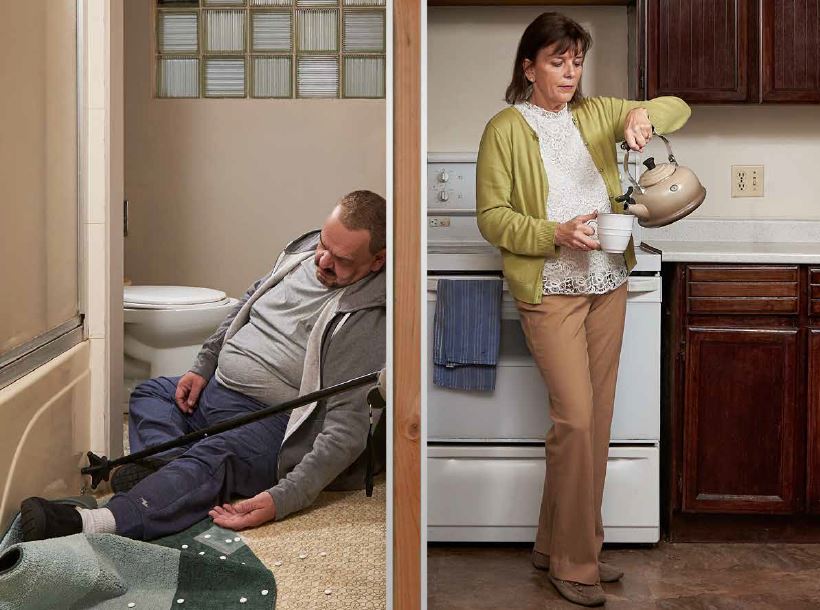Numbers released by the B.C. Coroners Service on Wednesday highlight the devastating effects of the overdose crisis in the province.

There were 1,422 overdose deaths in 2017, a 43 per cent increase compared to 2016, which saw 914 deaths. This past year was the deadliest for overdose deaths in the province’s history.
“We are still in the midst of a persistent and continuing epidemic of unintentional poisoning deaths,” said provincial health officer Dr. Perry Kendall. “Clearly we are actually going to need to think more broadly and think further outside both the box and comfort zones if we are going to get out in front of and turn this epidemic around.”
Kendall, who is retiring today, added the province should consider providing non-toxic opioids to drug users. So far there has been reluctance from governments to decriminalize drugs like heroin.
OD deaths down over last 4 months
There is some good news out of the numbers announced this morning. Overdose deaths in December went down from 164 in 2016, to 99 in 2017.
“The good news is it is not increasing, there has been a significant decrease in the last four months of 2017 but so far I think it is too early to say this is an ongoing downward trend,” said Dr. Patricia Daly, executive director for the B.C. Overdose Emergency Response Centre. “We still need to do more to continue to continue to see it go down. And we are also still seeing some concerning things such as a rise in deaths associated with the date of distribution of social assistance cheques.”
WATCH: B.C. overdose death numbers
Dr. Daly added the number of deaths overall slowed in the last few months of 2017 from four a day to three a day.
A silver lining, she says, to a very dark cloud.
“The good news is it’s not increasing. That the numbers we saw in the early months of 2017 there has been, what I would call, a significant decrease in the last four months. But so far I think it’s too early to say this is an ongoing downward trend.”

Get daily National news
Coroner Lisa Lapointe said the cause of the crisis over the last few years is clear.
“The number of overdose deaths not involving fentanyl has remained relatively stable at 300. So but for fentanyl, we would not be seeing the deaths that we are seeing.”
Fentanyl continues to play a big role, with 81 per cent of overdose deaths suspected to have involved the opioid.
WATCH: Surrey Fire Service develops new software to spot clusters of drug overdoses.

Top 5 cities
Vancouver 300 (Up from 234 in 2016)
Surrey 148 (Up from 121 in 2016)
Victoria 78 (Up from 69 in 2016)
Kelowna 66 (Up from 47 in 2016)
Nanaimo 43 (Up from 28 n 2016)
Government efforts
Last year, the B.C. NDP created the Ministry of Mental Health and Addictions aimed at tackling the province’s opioid crisis.
The NDP also committed $322 million over a three-year period to fight the opioid crisis. The federal government also assured $10 million for B.C. due to the alarming numbers.
Fraser Health also launched a campaign that focused on how people can help those struggling with addiction.
The campaign also focused on the support around substance abusers and warned people that overdoses are “closer than you think.”
The crisis also prompted for calls for better drug education. Abbotsford’s police chief called on the provincial and federal governments to make drug education part of the school curriculum.
His comments were made after Abbotsford saw five overdose deaths in less than 10 hours.
First responders feeling the pressure
But families aren’t the only ones feeling the effects of the overdose crisis, first responders have also come forward to speak about the pressures they face.
Some shared stories of having to work 16-hour days due to a lack of paramedics.
BC Emergency Health Services introduced a course last year to help first responders better handle post-traumatic stress disorder.
~With files from Global News Radio reporters Liza Yuzda and Janet Brown
- RCMP say investigation of shooting at Tumbler Ridge Secondary School completed
- B.C. 2026 budget ‘neither’ big cuts nor tax increase, minister says
- Parts of B.C.’s South Coast set to see snow-rain mix with ‘rapidly changing’ travel conditions
- Former Conservative leader John Rustad says he’s not running for his old job

















Comments
Want to discuss? Please read our Commenting Policy first.